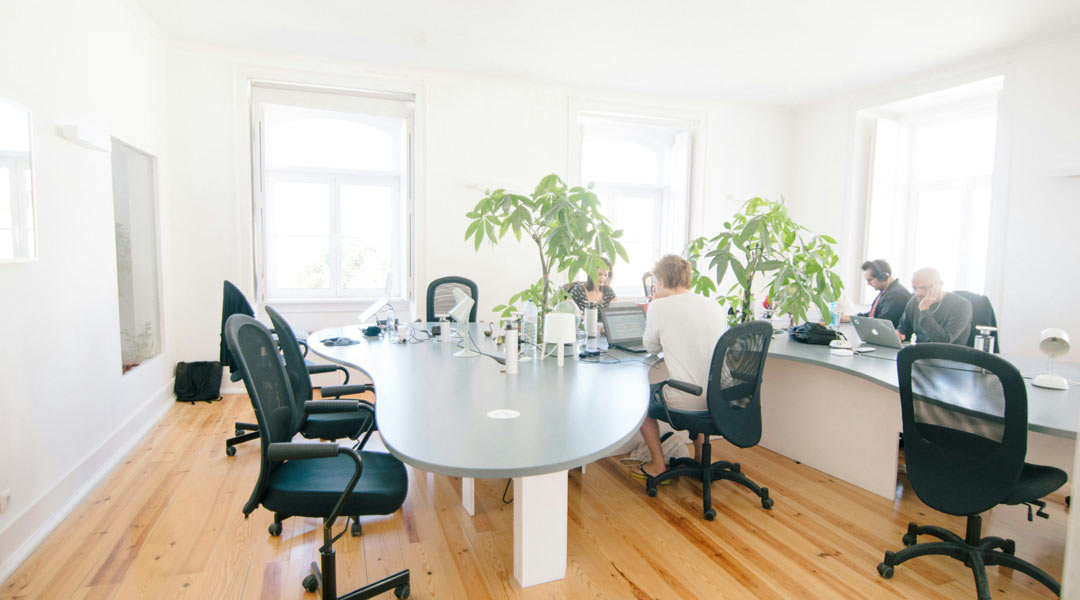The Role of Coworking Spaces in Fostering Innovation
Coworking spaces have transitioned from niche alternatives to mainstream work environments for freelancers, startups, and established businesses. The rise of remote work has increased the popularity of these flexible work environments, which are designed to foster collaboration and innovation. Unlike traditional offices, coworking spaces often feature vibrant colours and natural lighting, which can significantly enhance mood and productivity, creating an inviting atmosphere for creativity to thrive.
These spaces provide the ideal setting for professionals to share ideas and resources, breaking down the silos often found in conventional work environments. With a variety of workspaces available, from communal tables to private offices, individuals can choose their preferred mode of working, which further promotes a culture of collaboration and innovation in coworking.

Definition of Coworking Spaces
Coworking spaces are shared workspaces designed to provide a collaborative environment for professionals from diverse industries. They typically offer flexible membership plans, private offices, meeting rooms, and communal areas that cater to various work styles and needs. This flexibility not only accommodates different types of professionals but also encourages the mixing of ideas across disciplines, fostering a rich environment for innovation.
Many coworking spaces provide access to high-speed internet, office equipment, and other essential resources, reducing overhead costs for businesses and allowing them to focus on growth and creativity. For instance, a startup can operate without the burden of long-term leases, making it easier to pivot and adapt as needed.

How Collaboration Leads to Innovation
Collaboration in coworking spaces encourages idea sharing among professionals from various backgrounds, enhancing creativity. When individuals from different fields come together, they bring unique perspectives and expertise, which can lead to groundbreaking solutions. For example, a graphic designer might collaborate with a software developer, resulting in a new app that combines their skills and insights.
Informal networking during breaks in coworking spaces fosters trust and facilitates idea exchange among members. The collective energy and diverse experiences present in these spaces can lead to collaborative projects that might not have been possible in isolated environments. Hackathons and brainstorming sessions often hosted in coworking spaces actively engage members in problem-solving and innovation, further solidifying the importance of collaboration in driving creativity.

Successful Innovations from Coworking Environments
Notable innovations have emerged from coworking spaces, highlighting their role as incubators for creativity. Events and workshops hosted in these environments often lead to unexpected collaborations that result in new business ventures. For instance, in a coworking space, a freelance marketer might team up with a tech startup to develop a marketing strategy for a novel software product, ultimately leading to successful product launches.
Additionally, coworking spaces frequently showcase member-led initiatives that have garnered attention and funding from investors. These spaces serve as fertile grounds for startups to grow, as they provide access to a community of like-minded individuals who are eager to support one another’s ideas and projects.

The Role of Community and Networking
Coworking spaces combat feelings of isolation for remote workers by fostering a sense of community and support. Networking opportunities in these environments connect professionals with industry leaders and potential investors, creating pathways for career advancement. For example, a freelance writer might meet a publishing executive at a coworking event, leading to a lucrative contract.
Educational workshops and mentorship programs offered by coworking spaces enhance professional development and collaboration. The community aspect encourages members to engage in social events that strengthen personal connections and promote collaborative efforts, ultimately enriching the overall coworking experience.

Impact on Productivity and Satisfaction
Statistics show that professionals working in coworking spaces report higher productivity levels due to the supportive community and resources available. Research indicates that coworking spaces facilitate knowledge exchange, which is essential for innovative behavior. The flexibility in work hours and tailored membership options also contribute to improved work-life balance for members, allowing them to work in a way that best suits their individual needs.
Surveys reveal that 86% of coworking space members feel more motivated and focused in a collaborative environment. This sense of motivation stems from being surrounded by driven individuals who are equally passionate about their work, creating an atmosphere ripe for creativity and productivity.


The Future of Work in Coworking Spaces
The coworking model serves as a catalyst for innovation by providing a collaborative environment that nurtures creativity and teamwork. As the demand for flexible workspaces continues to grow, coworking spaces will play a crucial role in shaping the future of work and innovation in coworking spaces. Emerging trends indicate a rise in industry-specific coworking spaces that cater to particular sectors like tech, healthcare, and creative arts, further enhancing collaboration.
Moreover, the design of coworking spaces is evolving to create even more conducive environments for teamwork and innovation. With an emphasis on open layouts, communal areas, and creative zones, these spaces are becoming increasingly tailored to foster collaboration among diverse professionals, ensuring that they remain at the forefront of the evolving work landscape.


